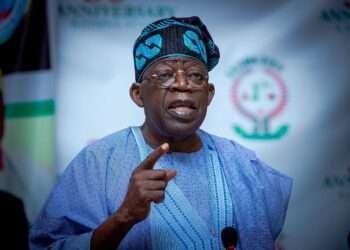The global energy landscape is undergoing a significant transformation, with natural gas emerging as a key component in the transition towards cleaner energy solutions.
In this evolving scenario, Africa, with its vast untapped natural gas reserves, holds immense potential to become a major player in the global liquefied natural gas (LNG) market.
According to NJ Ayuk, Executive Chairman of the African Energy Chamber (AEC), the continent is uniquely positioned to capitalize on the increasing demand for LNG, but several challenges must be addressed to unlock its full potential.
In the recently released 2025 Outlook Report, The State of African Energy, the African Energy Chamber (AEC) explores Africa’s role in the global LNG trade, outlining both the significant opportunities and inherent risks involved.
Ayuk highlighte the critical issues and strategic steps Africa must take to harness its vast natural gas resources and secure its place in the global LNG market.
“LNG represents about 10-15% of global gas demand, and Africa has a critical role to play in meeting this demand.”
NJ Ayuk, Executive Chairman of the African Energy Chamber (AEC)
Africa’s natural gas reserves are substantial, accounting for approximately 6% of global gas supply, with expectations for this share to grow by about 15% by 2030.
As outlined in the AEC report, an additional 1,000 billion cubic meters (bcm) of supply from pre-final investment decision (FID) projects will be needed to meet the 2030 demand, with African countries such as Mozambique, Nigeria, Senegal, and Mauritania positioned to contribute significantly.
Mozambique, for instance, is on the verge of becoming a major LNG exporter, with projects like Mozambique LNG set to dramatically boost the continent’s export capacity.
One of Africa’s strongest advantages is its strategic geographical position. The continent is ideally located between European and Asian markets, making its LNG exports an attractive option for countries seeking to diversify their energy sources.
This proximity provides African LNG with a unique opportunity to tap into growing demand, particularly in Europe, which has been actively seeking alternatives to Russian gas.
“This geographic advantage allows Africa to not only expand its economic base through energy exports but also to drive industrial and infrastructural development at home.”
NJ Ayuk, Executive Chairman of the African Energy Chamber (AEC)
Strategic Solution Forward

Despite the immense promise of Africa’s LNG potential, several risks need to be navigated carefully. Security issues, political instability, and regulatory uncertainty remain significant obstacles.
The development of LNG projects in Mozambique, for example, has been delayed by insurgency and civil unrest, which has increased costs and diminished investor confidence.
“Security and stability are critical to attracting and retaining investment in LNG projects.”
NJ Ayuk, Executive Chairman of the African Energy Chamber (AEC)
Many African nations face regulatory uncertainty, making it difficult for investors to assess project risks and timelines.
Securing financing for large-scale LNG projects is already a major challenge, especially when potential investors are wary of the political and economic environment in the region.
Another significant concern is the competitive global market. With North America, Russia, and the Middle East expanding their gas supplies, Africa may struggle to secure a foothold in the crowded LNG market.
Additionally, oversaturation of the market could lead to lower prices and stranded fossil fuel assets, further complicating Africa’s LNG ambitions.
Moreover, the lack of adequate infrastructure for both domestic and export use of LNG remains a major bottleneck.
Projects such as the West African Gas Pipeline and the Trans-Saharan Gas Pipeline, designed to improve connectivity, will require massive capital investment and cross-border cooperation—both of which are difficult to secure in the current geopolitical climate.
Finally, the environmental impact of LNG projects, particularly in ecologically sensitive areas, must be carefully managed.
The global push for sustainability means that long-term LNG projects will need to incorporate significant carbon management strategies to remain viable.
Ayuk suggeste that Africa should diversify its export markets rather than rely on a single region.
“Developing more localized natural gas markets can provide greater self-sufficiency and stabilize income streams.”
NJ Ayuk, Executive Chairman of the African Energy Chamber (AEC)
Investing in infrastructure—pipelines, ports, and local distribution networks—will be essential to support both domestic energy needs and export capabilities.
Additionally, addressing environmental concerns through carbon capture and storage, as well as incorporating renewable energy projects alongside LNG production, will be critical to achieving sustainability in the sector.
Africa’s LNG potential represents both an opportunity and a challenge. The promise of economic prosperity, energy security, and environmental benefits is within reach, but navigating the complex web of risks will require coordinated efforts from governments, private sector stakeholders, and international partners.
With strategic planning and a focus on sustainability, Africa can harness its natural gas resources to fuel not just global markets but its own path toward inclusive and sustainable development.
READ ALSO: Davido Fulfills ₦300M Pledge to Nigerian Orphanages







